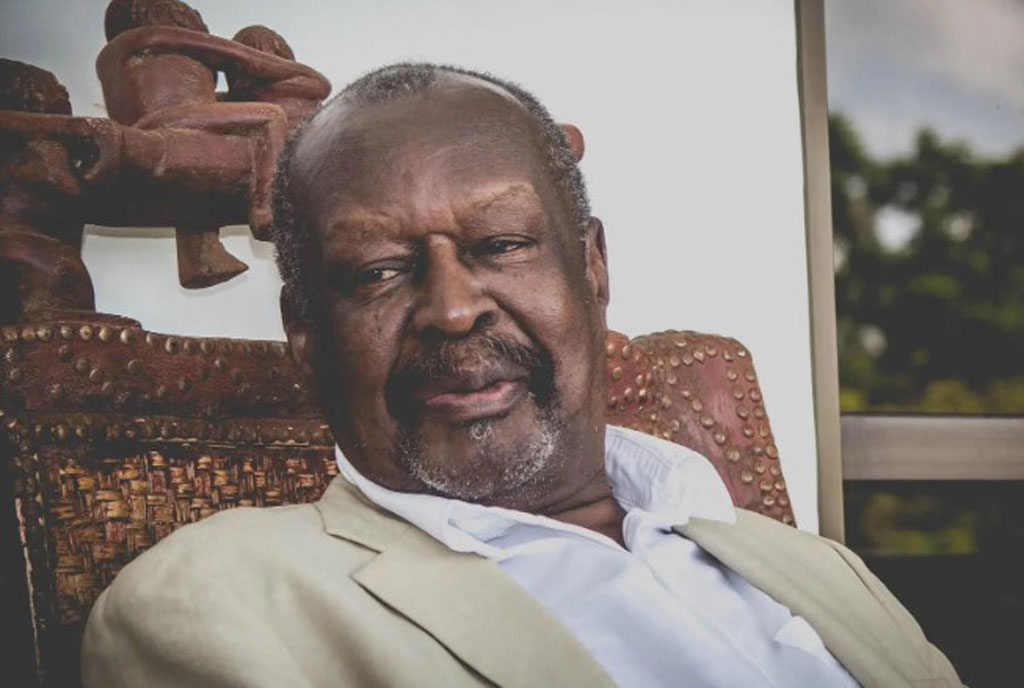Prime
Fare-thee-well John Nagenda

Author: Phillip Matogo. PHOTO/FILE
What you need to know:
‘‘In spite of his politics, Nagenda was a highly intelligent man who saw trouble on the horizon”
Senior Presidential Advisor on Media and Public Relations, John Nagenda, died on March 4, at age 84.
Poetically speaking, March 4 is a homophone for “March Forth” which calls to mind Isaiah 43:13 of the Bible: The Lord will march forth like a mighty hero; He will come out like a warrior, full of fury.
These biblical words could have served as prefatory remarks for a conference Nagenda attended in June 1962.
At the time, Nagenda was a student of English at Makerere University College (as it was known then) and he attended a conference of African literature in the English language, the first African Writers Conference, held at Makerere.
Dubbed a “Conference of African Writers of English Expression”, it was sponsored by the Congress for Cultural Freedom and the Mbari Club in association with the Department of Extra-Mural Studies of Makerere.
The conference was attended by such literary warriors as Chinua Achebe, Wole Soyinka, Christopher Okigbo, Dennis Brutus, Ngũgĩ wa Thiong’o (at that time known as James Ngugi), Robert Serumaga, Rajat Neogy (founder of Transition Magazine), Okot p’Bitek, Pio Zirimu (credited with coining the term “orature”), David Rubadiri and Langston Hughes, among others.
This colloquium was fired up by the heroic tales shared by these literary luminaries as they talked about how their respective governments had variously shot at, beat, jailed and intimidated them as a means to silencing them.
However, they kept their noses to the literary grindstone and continued churning out hard-hitting words as if they, the writers, were invulnerable.
Sadly, Nagenda had no such tales to share.
He never plumbed the dangerous depths or forded the treacherous shallows in order to simply express himself as his fellow conference attendees did.
So, feeling left out, he asked, “We who have never been beaten, shot at or jailed…does this rob us of our worthiness of being present at this conference?”
Or words to that effect, Nagenda’s historic question would often be reworded with his retelling of what transpired at this conference.
Although many fault him for not taking the thorny road of literary activism, Nagenda, from an early age, had decided that sticking his neck out for what he believed in was a little too rich for his blood.
An old Italian proverb, declares that “if you would succeed, you must not be too good.”
And Nagenda seemed to succeed not by being good, but by playing it safe. He was not one to break new ground, when he could glory within its limits.
This turned him into the opposite of a bleeding heart as he all but renounced the dominion of sentiment in favour of hard-nosed realism.
He thus set out to serve leaders he inwardly loathed as he placed at their disposal his keen poetic sense.
Writing was no longer a passion to him. Instead, it was a convenient weapon for his political masters’ purposes.
To insulate himself against those who felt he sold his soul in exchange for 30 pieces of silver, Nagenda became singularly destitute of compromise.
He labelled the adversaries (he would prefer “enemies”) of the ruling National Resistance Movement as traitors; mere bugs on the windscreen of a Movement bus driven in reverse. Still, in spite of his politics, Nagenda was a highly intelligent man who saw trouble on the horizon.
More and more Ugandans seemed to share harrowing stories similar to the literati he conferenced with in 1962 and this left him cold.
I often wonder if he could’ve gone back to the 1960s, would he have taken the road not taken by fighting injustices.
Tragically, we shall never know.
Mr Matogo is a professional copywriter
[email protected]




